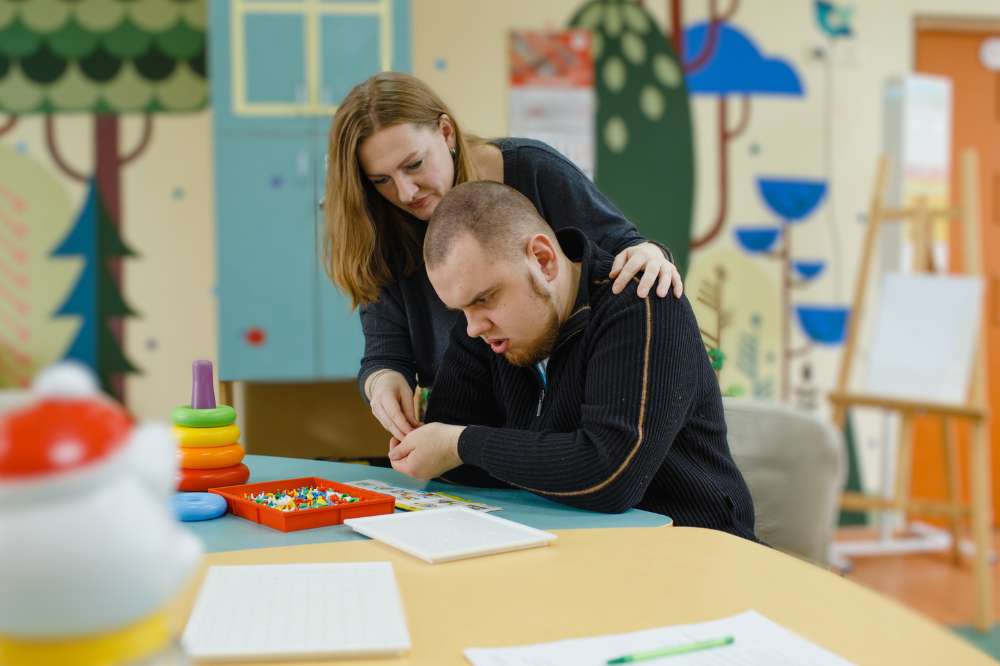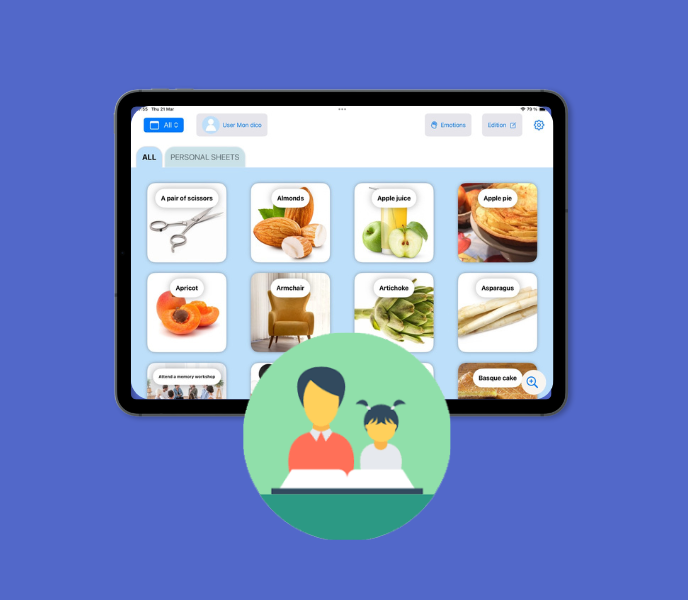Autonomy is a fundamental aspect of human life, allowing individuals to make choices and decisions that shape their own lives. For individuals with special needs, autonomy takes on an even greater significance. It empowers them to have control over their own lives, make choices that align with their preferences and abilities, and develop a sense of independence. In this article, we will explore the importance about how using routines to improve autonomy for special needs individuals and discuss various strategies for enhancing it and independence in their daily lives.
Understanding the Importance of Autonomy for Special Needs Individuals
Autonomy refers to the ability to make decisions and take actions independently, based on one’s own preferences and values. For individuals with special needs, autonomy is crucial for their overall well-being and quality of life. It allows them to have a sense of control over their own lives, fostering self-confidence and self-esteem.
When individuals with special needs are given opportunities to exercise autonomy, they’re more likely to develop a sense of identity and purpose. They can explore their own interests and passions, make choices that align with their abilities, and pursue goals that are meaningful to them. This sense of autonomy can greatly enhance their overall happiness and satisfaction in life.
Creating a Structured Daily Routine to Improve Autonomy
For individuals with special needs, structure and routine are not just helpful; they’re essential components in fostering independence and confidence. Here’s how structured routines benefit them:
- Enhanced Sense of Control: Structured routines empower individuals with special needs by giving them a sense of control over their environment and actions. As an example, a child with autism may feel more confident and secure knowing that after finishing breakfast, they’ll engage in their preferred activity, followed by structured learning time. This predictability reduces anxiety and encourages active participation.
- Improved Transition Management: A structured daily routine assists individuals in managing transitions between activities smoothly. For instance, a visual schedule can visually depict the sequence of tasks throughout the day, helping someone with ADHD anticipate and prepare for shifts in focus. By knowing what to expect, they can mentally prepare for transitions, reducing frustration and meltdowns.
- Facilitates Skill Acquisition: Structured routines provide a framework for skill development and learning. For instance, a person with Down syndrome may benefit from a consistent routine that includes dedicated time for practicing self-care tasks, such as brushing teeth or getting dressed independently. By repeating these activities daily within a structured schedule, individuals with special needs can gradually master new skills and build confidence in their abilities.
- Promotes Social Interaction and Engagement: A well-organized routine can create opportunities for social interaction and engagement with peers and caregivers. A teenager with cerebral palsy may have scheduled times for group activities or therapy sessions within their daily routine for example. These planned interactions not only foster social skills but also encourage meaningful connections and a sense of belonging within their community.
In summary, structured routines not only provide stability and predictability for individuals with special needs but also serve as catalysts for skill development, socialization, and overall well-being.
Identifying the Unique Needs of Special Needs Individuals
Each individual with special needs is unique, with their own strengths, challenges, and preferences. It’s essential to understand and respect their individual needs in order to promote autonomy effectively. This requires taking the time to get to know the individual, listening to their preferences and concerns, and involving them in decision-making processes.
One way to identify the unique needs of special needs individuals is through person-centered planning. This approach involves gathering information about the individual’s strengths, interests, and goals, and using that information to develop an individualized support plan.
The support plan should outline specific strategies and accommodations that will help the individual achieve their goals and enhance their autonomy.

Incorporating Choice and Decision-Making Opportunities into Daily Routines
Incorporating choice and decision-making opportunities into daily routines is a powerful way to promote autonomy for individuals with special needs. When individuals are given the opportunity to make choices, they feel a sense of ownership and control over their lives. This can lead to increased motivation, engagement, and overall satisfaction.
There are various strategies for incorporating choice and decision-making opportunities into daily routines. One approach is to offer choices within specific activities or tasks. Indeed, during mealtime, individuals can be given options for what they want to eat or drink. In educational settings, they can be given choices about which subjects or activities they want to engage in.
Another strategy is to involve individuals in decision-making processes that affect their lives. This could include decisions about their living arrangements, educational or vocational goals, or recreational activities. By involving them in these decisions, individuals with special needs can develop important skills such as problem-solving, critical thinking, and self-advocacy.
Encouraging Independence Through Daily Living Skills Practice

Daily living skills are essential for independence and autonomy. These skills include tasks such as personal hygiene, meal preparation, household chores, money management, and transportation. By practicing and mastering these skills, individuals with special needs can become more self-reliant and confident in their abilities.
One strategy for encouraging independence through daily living skills practice is to break down tasks into smaller, manageable steps. This allows individuals to learn and practice each step before moving on to the next. It’s also important to provide clear instructions and demonstrations, and to offer support and encouragement as needed.
In addition, it can be helpful to provide opportunities for individuals to practice these skills in real-life settings. They can be involved in grocery shopping, cooking meals, or doing laundry. This allows them to apply their skills in meaningful ways and develop a sense of competence and independence.
Using Visual Supports and Routines to Improve Autonomy and Independence
Visual supports are powerful tools for enhancing autonomy and independence for individuals with special needs. They provide visual cues and reminders that help individuals understand and navigate their environment more effectively. Visual supports can be used in various ways, depending on the individual’s needs and preferences.
One example of visual supports is visual schedules or calendars, which provide a visual representation of the daily routine or upcoming events. This helps individuals understand what is happening and what they need to do next.
Visual supports can also include visual cues or prompts for specific tasks or activities, such as step-by-step instructions for completing a task.
Another example of visual supports is social stories, which use pictures and simple language to explain social situations or expectations. Social stories can help individuals understand social norms, develop appropriate social skills, and navigate social interactions more successfully.
Building Self-Advocacy Skills for Increased Autonomy
Self-advocacy skills are essential for individuals with special needs to advocate for their own rights, needs, and preferences. By developing self-advocacy skills, individuals can effectively communicate their desires and make informed decisions about their own lives.
A strategy for building self-advocacy skills is to provide opportunities for individuals to practice expressing their opinions and preferences. This can be done through role-playing or simulated scenarios, where individuals are encouraged to speak up and assert themselves in a safe and supportive environment.
It’s also important to teach individuals about their rights and responsibilities, and to provide them with information and resources that can help them make informed decisions. This could include information about available support services, educational or vocational opportunities, or legal rights and protections.
Supporting Emotional Regulation and Self-Management Through Daily Routines
Emotional regulation and self-management skills are crucial for autonomy and independence. Individuals with special needs often face unique challenges in managing their emotions and behaviors. By supporting their emotional regulation and self-management skills, we can help them navigate through daily life more effectively.
One strategy for supporting emotional regulation and self-management is to incorporate calming or self-soothing activities into daily routines. This could include activities such as deep breathing exercises, mindfulness or relaxation techniques, or engaging in preferred hobbies or interests.
It’s also important to provide individuals with strategies for identifying and expressing their emotions in healthy ways. This could include teaching them how to recognize physical sensations associated with different emotions, how to label and communicate their emotions, and how to engage in problem-solving or coping strategies when faced with challenging situations.
Fostering Positive Relationships and Social Connections for Autonomy
Positive relationships and social connections are essential for autonomy and well-being. Individuals with special needs often face social isolation or difficulties in forming meaningful relationships. By fostering positive relationships and social connections, we can help them develop a sense of belonging, support, and community.
One strategy for fostering positive relationships is to provide opportunities for individuals to engage in social activities or group settings. This could include joining clubs or organizations that align with their interests, participating in community events or programs, or engaging in recreational activities with peers.
It’s also important to provide individuals with social skills training and support. This could include teaching them how to initiate and maintain conversations, how to read social cues and respond appropriately, and how to navigate social situations or conflicts.
Evaluating and Adjusting Daily Routines to Improve Autonomy and to Meet Changing Needs and Goals
Daily routines should be evaluated and adjusted regularly to meet the changing needs and goals of individuals with special needs. As individuals grow and develop, their abilities, preferences, and goals may change. It’s important to regularly assess their progress and make necessary adjustments to support their autonomy and independence.
One strategy for evaluating daily routines is to involve individuals in the process. This could include asking for their feedback or input on what is working well and what could be improved. It’s important to listen to their perspectives and take their opinions into consideration when making changes.
Another strategy is to seek input from other professionals or caregivers who work closely with the individual. They may have valuable insights or observations that can inform the evaluation process. By collaborating with a team of professionals, we can ensure that the individual’s needs are being met holistically.
In conclusion, autonomy is a vital aspect of life for individuals with special needs. It empowers them to have control over their own lives, make choices that align with their preferences and abilities, and develop a sense of independence. By understanding the importance of autonomy and implementing strategies to enhance it, we can support individuals with special needs in living fulfilling and meaningful lives.
MY DICO
My Dico is an developed by Dynseo that includes various features. The app, available on IOS devices is adapted for people with special needs like non-verbal individuals. The user will have access to a visual Dictionary to express its thoughts and needs, an Emotions window and a Routines window with sequencing and games to learn them. My Dico has been created in order to be the daily live’s communication and autonomy assistant for people with linked impairments.

Other articles that might interest you:
How Parents Can Contribute to Teacher Training
As we delve into the realm of education, it becomes increasingly clear that teacher training is not merely a...
Differentiated Instruction Approaches: Training and Practical Application
Differentiated instruction is a pedagogical approach that recognizes the diverse needs of students in a classroom. It...
Key Skills Teachers Need to Support Students with Special Needs
As we embark on our journey to support children with special needs, it is essential for us to cultivate a deep...







